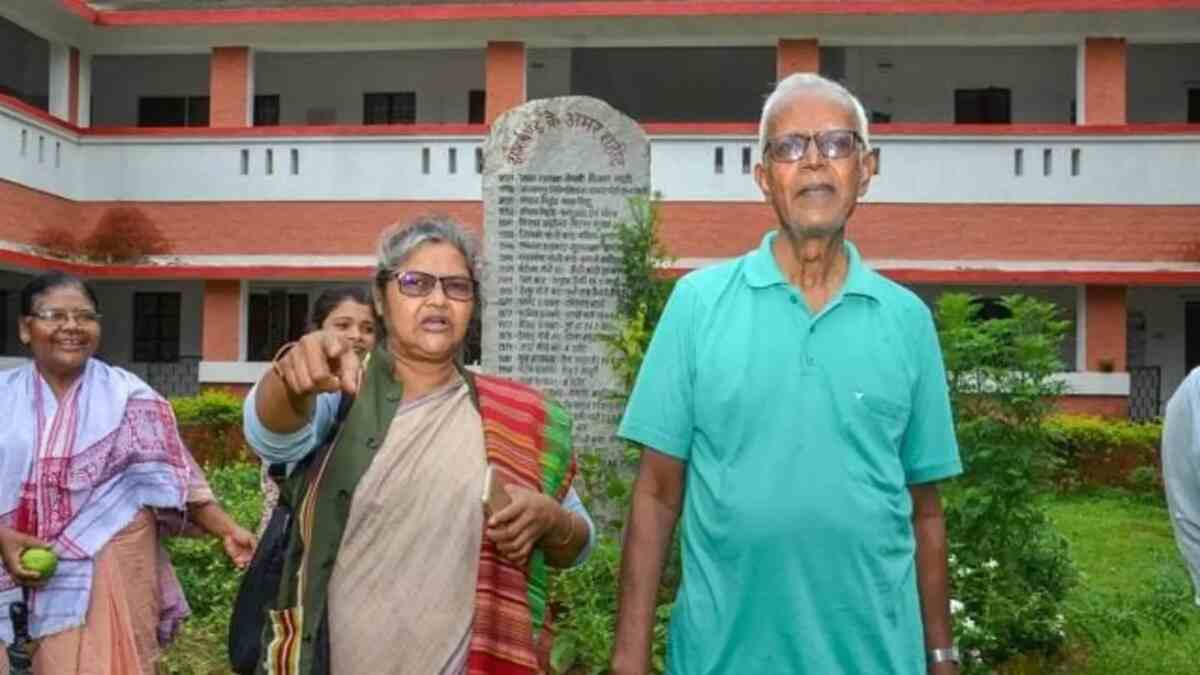Tragedy of justice

On the afternoon of July 5, Father Stan Swamy breathed his last as he succumbed to his illness at Mumbai's Holy Family Hospital. Swamy at 84 years of age was a Jesuit priest and a prominent tribal rights activist who had been arrested in October 2020 by the National Investigation Agency and booked under the dreaded UAPA. Held for nine months without bail before his death, Swamy's death has once again raised questions over the use of the UAPA and its place in a democratic society. Swamy was arrested in 2020 in connection with the 2018 Bhima Koregaon violence. He was one of 16 activists who were arrested on accusations of having Maoist links which supposedly played a key role in the 2018 violence. His life's work had been to empower Adivasi communities, especially fighting against the illegal detention of minors who have been accused of being Maoists. It was this work that ultimately led him to be charged with being a Maoist collaborator. When he was arrested, the NIA claimed that Swamy's organisation, Bagaicha was connected with the Visthapan Virodhi Jan Vikas Andolan. This Jharkhand-based Adivasi rights organisation was itself accused of being a front for Maoist groups. As is common with any UAPA case, bails are next to impossible to get and proof of guilt not readily apparent though Swamy was allegedly shown several incriminating documents that supposedly came from his computer. He could be held for months on end without bail or trial and this is precisely what happened. In jail, Swamy challenged his conviction many times, once questioning the use of the terminology 'frontal organisations', a terminology he claimed allowed prosecuting agencies to arbitrarily oppose bail pleas. He applied soon for interim bail on grounds of health. He was suffering from old age and Parkinson's disease, making a term in jail a cruel burden. His bail was naturally denied. What was even more callous was that his simple request for a straw or sipper so that he may drink water with his health condition took around a month. Even after Swamy approached the court for the provision of a straw, the prosecution was given 20 days to file a reply for his simple request. Was this bureaucratic inefficiency at play? Was it simple cruelty for cruelties sake? Regardless, Swamy struggled in jail, becoming visibly weaker and more fragile as he once again applied for bail on medical grounds in November 2020. Though there was no indication that the NIA wanted to question him any further and he clearly was suffering health-wise, his bail was ultimately rejected, this time after four months of delay. In total, his requests for bail were rejected four times, each time being accused of using his health or COVID-19 as a shield and taking 'undue advantage' of the situation. By the time his last bail was rejected, Swamy was already broken and perhaps resigned to his fate. When he last spoke via video conference to the Bombay High Court to again appeal his medical bail, he admitted that he would 'probably die' in Taloja jail as his jail term further ravaged his weakened body. And speaking of COVID, it was only when Swamy was moved to the Holy Family Hospital on a court order that it became obvious that he had been infected during his term in jail as he had feared he would. Ultimately, this was not just about the UAPA. Yes, the UAPA is controversial and many believe it is unconstitutional. But that is a separate issue. Even if Swamy had to be held under this controversial law, what excuses the cruelty of his treatment, especially given his old age and his health problems? Even if he was to be punished for his so-called links with Maoist organisations, why was he punished even before the trial by being incarcerated without medical care? Even till the end, the NIA reportedly opposed moving Swamy to a private hospital instead claiming he would receive treatment in jail. Was he a danger to the nation, to anyone really in the condition he was in? Even if there is an argument to be had about why the UAPA must be allowed to continue from a legal perspective, the violations of basic human rights that it suddenly allows cannot go unnoticed. It is the duty of Indian lawmakers, courts and even everyday Indians to deliberate why an old, infirm man who has spent his life fighting for the rights of others had to die in such a manner. At this juncture, we certainly need the long-overdue revision of the UAPA. But besides that, there is an urgency to redraw the line that separates the content of any law from its spirit and objectives. Should a law be subjected to an interpretation and implementation that defies its very purpose? Certainly not. And, above everything, an impartial probe in the death of Swamy remains due.



